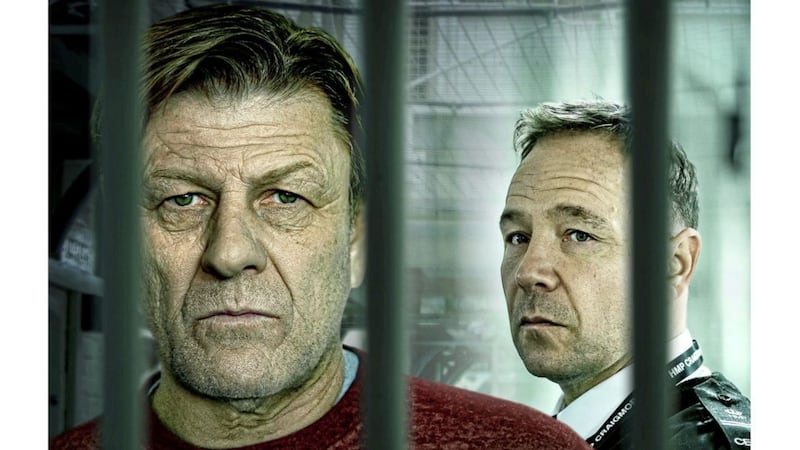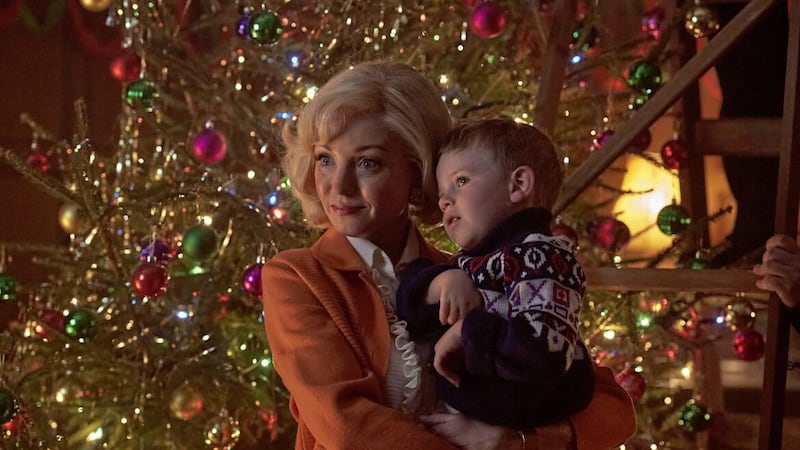Time
BBC One, Sunday at 9pm
IT is obvious from the opening scene of Time that it's Mark Cobden's first experience of jail.
Drowned out by the fierce shouts and screams of fellow convicts in the prison van, the fear is written across his face.
Jimmy McGovern's three-part drama explores the volatile world of prison life through the eyes of Cobden, played by Sean Bean, and prison officer Eric McNally, played by Stephen Graham.
The painful injustice of the system they are both part of is shown from their varying perspectives - but played out in bleak, harsh and often savage scenes.
For Cobden, as he steps out of the van and is escorted into HMP Craigmore, it's not long before his first taste of thuggery unfolds as a man beside him is head-butted for being an alleged 'tout'.
During the processing stage into the prison, he is asked for his name, age, any medication he is taking and what religion he is.
Nervous and jittery, he mumbles that he doesn't really believe in God.
"I’ll put you down as Anglican then," replies the police officer, to which Cobden quickly responds, "No, no... more, more lapsed Catholic".
While that moment may have raised a slight laugh, the majority of the first episode is heavy watching.
It is a violent depiction of life on the inside as both Cobden and McNally tackle their own personal battles, their two lives and sets of struggles crossing.
For Cobden, facing four years inside, he is consumed by guilt for his crime.
A convicted drunk driver, he is haunted by the man he accidentally killed.
The timid schoolteacher flinches at the slightest scream and shrinks away from the violence meted out inside the confines of the jail. It is these scenes in particular that are difficult to watch.
He is a man who tries to stick to the rules, but in such volatile surroundings, it's clear that won't work.
Cobden is introduced to cell mate Bernard, convicted for killing his own father. A paranoid man who begins to self-harm as he suffers a panic attack.
Claiming he has Aids, Bernard is removed from the cell by prison officers in riot gear, as a shell-shocked Cobden looks on in horror.
One of the most shocking moments in the episode sees inmates add a packet of sugar to a boiling kettle of water and throw it over a man.
The terror that Cobden faces in his first few days in prison is excruciating - from the brutality, the bullying, and the death of his cell mate to his loss of his precious phone calls home.
His gentle ways are exploited again and again.
Then there's McNally, who appears to be a fair officer, one who has seen it all before and wants to help those locked up. But he is hiding the dangerous secret that his son David is serving time in another prison.
It's not long before he is challenged about it by a new, but returning, inmate.
"You want him to be comfy don’t you? We know loads of lads down there," says the prisoner.
Give into the blackmail or put his son’s life at risk, McNally's dilemma provides a gruelling insight into the politics of prison life.
Just one episode in and already renowned screenwriter McGovern's portrayal of life on the inside raises serious questions about the British justice system.
One of the major points he is addressing is the fragile minds of prisoners. Yes, many are violent offenders and prison is where they belong, but there are others who would be better suited to psychiatric units than jail cells.
McGovern is highlighting the reality of the penal system and the need for it to be improved significantly.








